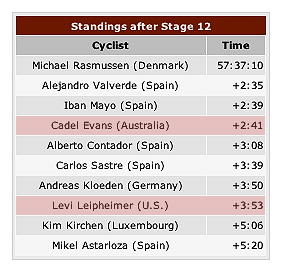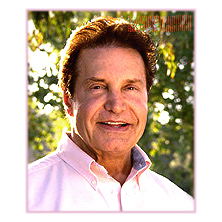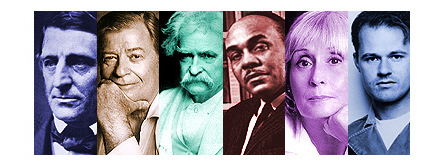Milton felt positively enough about my Easter morning words at the cabin to reschedule them for this past Sunday. There were a lot more people there, thanks to his endorsement, including Bruce, Lee, and David. Keeping in mind that some of my talk refers specifically to the “Shared Silence” community, I publish it here in its entirety (full credit to my best buddy Mike for the heart of this essay).
ON DEXTERITY AND THE WISDOM OF HANDS
(After Silence: 4-8-07 and 7-8-07)
Like many of you, I have retained great friendships from childhood, young adulthood, and middle life. The concept of this talk originates with my best friend from college years, James Michael Menke, a behavioral scientist who earned a doctorate in chiropractic and currently serves on the faculty of the Program for Integrative Medicine at the University of Arizona, where he is at work on a Ph.D. in experimental methodology. Mike is the resident chiropractic authority at AndrewWeil.com and, in addition to his scientific publishing, contributes articles to “Dynamic Chiropractic,” the largest circulation periodical for his profession. I must give due credit to him for many of the facts, observations, and speculations that I include in my words.
* * *
It’s been four and a half years since I offered words after silence, when I reflected on my 50-mile birthday run, an event now overshadowed in memory by an occurrence that took place two days before—a present from Dana, an extraordinary celebration with friends and a retrospective exhibition of my greeting cards. Hundreds of these “miniatures” carried my dexterity of hand through a period of relentless computerization in my chosen field, something I never could have anticipated in my youth, when I fully expected a lifetime of evolving manual craftsmanship as a commercial artist. Although I’ve cut back drastically on my card-making hours, I see it now as an essential bridge activity that has prepared me for an increasing dedication to the fine arts in later life. In short, I accidentally found a way to preserve the traditional hand skills which so many in my profession have lost, having bartered them away for a new fluency with software, mouse, and keyboard.
* * *
Is it progress when we trade our ability to develop our hands for increasingly cerebral preoccupations? For most of our lives, American culture has equated handwork with unskilled work. “Manual” mostly means “menial”—or tasks no one else wants to do—and manual dexterity is associated with dullness. As those who work with their hands know at some level, hands work faster than eyes and minds can follow and quickly gain greater knowledge of objective reality. Phrases like “hands on” or “in touch” have come to mean being more connected with the way things really are, outside our frameworks of mental abstraction. Similarly, I often experience the way in which a captive idea is stuck on a mental spinning wheel until the hand is permitted to liberate it with a thumbnail sketch. Dana has told me it amuses her to see my hand moving unconsciously when she finds me deep in thought. There seems to be a direct link.
According to surgeon Frank R. Wilson, author of “The Hand: How Its Use Shapes the Brain, Language, and Human Culture,” a pianist is the summit of human achievement because of his or her ability to direct 400 muscle contractions per second, all in a single, purposeful action to produce music. Dr. Wilson proposes that the evolutionary gift of the human hand over 3 million years ago forced our brains to grow to direct and control this remarkable tool. Language and reasoning were just byproducts of a brain designed for “handedness.”
Neither raccoons, monkeys, nor apes have hands like those of the human. The human hand was made to sense and assess, control and force, and then express, caress, and eventually—to heal. The human hand is the product of anatomy and innervations unique in biological life. Menke believes that the Wilson hypothesis also puts a minor dent in the popular notion of mind-body. American mind-body dualism assumes minds affect bodies, and largely ignores how bodies affect our minds. He thinks it is an ingrained bias we don’t even notice, stemming from an ongoing love affair with the brain as our main source of power and identity. We have bodies simply to lug around and protect our brains, right? He goes on to propose the intriguing possibility that the musculoskeletal system expresses our true identity, and that our glands, organs, and brains see to it we have the requisite stuff needed to accomplish our mission. Perhaps our brains are mere servants of the hands. Could it be our hands make us distinctively human, and not our brains?
Is it possible that Argentina’s piano virtuoso Martha Argerich represents the most recent leap in human evolution? Maybe the arrival of a Yo-Yo Ma advances our species more than a Bill Gates or a Susan Sontag—who can say?
* * *
Consider the progressive prejudice against manual in favor of mental expertise and how Western society has pushed dexterity to the bottom of the totem pole, since the decline of the great European guilds of the Middle Ages, to the point that we have a situation where the work “Americans won’t do,” is potentially leading us to the brink of social crisis. One could make the case it was wrong to advise mamas, “Don’t let your babies grow up to be cowboys.”
Consider how various health care professions that are more probative and that delve into problems with hand intelligence remain low on the occupational ladder or command less respect among elites. Jerome Dixon is a beloved clinician in his adopted home of Campbellsville, but he is also thought by many of his peers to be one of America’s outstanding hands-on osteopathic practitioners. When people, who already know my brother is a physician, learn that he is a D.O., I can detect the crestfallen look in their eyes. “Mamas, Don’t Let Your Babies Grow Up to Be Skilled Musculoskeletal Diagnosticians.”
Why is there such a cultural emphasis on working with the head instead of the hand? Working with your hands—sometimes called making an honest living, because you can see and count your accomplishments—is on the decline, even though it is the most difficult American work to outsource. It’s impossible to fight a fire, massage a spasm, wax a floor, cuff a criminal, cleanse an injury, build a road, or fix your commode from a call center in Bombay.
Manual consciousness—the wisdom of hands— is too often dismissed in our head-centric culture. Problems can frequently be found and solved by hands without all the judgmental posturing of the mind. Hands can quickly know what our minds may never grip, manipulate, articulate, or ultimately grasp.
As Yale University researcher Paul Bloom has explained, an adaptive mistake in human development may have given us an inborn comfort with the idea of a consciousness as being separate and separable from bodies. Whereas, Dr. Bloom suggests we have built into our DNA an indifference for the physical body as a temporary vessel, and are predisposed by evolution to believe in the supernatural, since minds and bodies seem to have a separate existence, Menke finds a more basic and immediate interpretation of Bloom’s data—that breaking the body away from the mind only leads us to fragmented views of ourselves and others.
In his book on Harlan Hubbard, Wendell Berry describes how the Kentucky artist and individualist committed himself to “an authentic life in his consciousness.” He writes that Harlan’s genius was in how he gave “the body a significant life in the world,” an existence that was “dignifying and pleasing to itself.” Like his most constant mentor, Thoreau, Harlan Hubbard sought first to live well, and to him, this meant a certain mistrust of mental abstractions removed from the objects of thought and one’s affection for those objects. In Harlan’s own words, “The mind tries to live by the artificial structure of the world, but the body will have none of it, holding to primeval forces. People try to be all mind….this has gone so far that now….the earth itself is but an idea.” Berry concludes that fundamental to Hubbard’s character was his refusal to live by mind alone. In his unwillingness to put his body and his bodily life under the rule of abstract ideas or monetary values, he avoided contemporary man’s tendency to use the world and its goods without love or care, a denial of both the life of the body and of the spirit.
* * *
And so, when I reflect on the particular abilities of my own body, it is with humility that I must appreciate each one’s distinctive integration of dedicated practice, mindful habit, and genetic heritage. This is painfully obvious when I presume my hand dexterity might cross over or be successfully interchanged. In other words, don’t let me transplant a seedling, touch a leaky pipe, or pick up a musical instrument. What of the untold wealth of dexterity that may exist within the group of unique individuals who frequent this cabin? What can I ever know of it? What do I know of the personal dexterity of Karen, Mary Ann, Leslie, or Sara Jane? What products of accomplished hands lie beyond my limited awareness?
Nevertheless, I won’t forget my sense of admiration when I first saw Lester run his fingers over a selected piece of lumber. How many times have I marveled as Ernst leaves the saddle to apply his deft touch to a shifter assembly, correcting a malfunction within seconds? What of the other familiar pairs of hands I know only when they hold a cup of hot coffee in the chilly air on a Sunday morning, never having witnessed their most articulate performances? What of Jim’s nuanced grip of the reins, Elizabeth’s green thumb, Dan’s expert trigger squeeze, or Victoria’s compassionate caress? What will I ever know of these? If I haven’t understood the hands, how can I hope to ever know the real person?
Having said that, I believe I can state without fear of contradiction that the most awe-inspiring pair of hands among us is forever gone from our physical circle. They belonged to someone I think of when I read what Harlan Hubbard wrote in 1932:
“There is but one great man. That is he who makes a masterpiece of his life. No accomplishment can offset bad living.’’
When in my friend’s presence, I failed to fully regard either of those immensely capable hands, preferring instead his characteristic twinkle of eye. Who else among our circle could demonstrate to his extent the genius of handedness—to execute a graceful brush stroke, to throw a well-proportioned pot, to compose in limestone with incomparable decisiveness, to improvise jazz melodies by intuitive fingering, or to repair the living tissue of a damaged joint? Even now, the thought of it nearly takes my breath away. These were not hands in mere service to the intellect, but a mind and heart in service to the world—properly and definitively through his magnificent hands.
How grateful am I for the good fortune to have encountered those hands, and the rich depth of human character they shaped in order to empower their creative potential! His world will continue to possess their diverse manifestations—animate and inanimate, evidence of the spirit they energized—long after the hands have left us for a place filled with new activities for the hands of a soul—the unimaginable creative pursuits of Life Everlasting.






 —
—